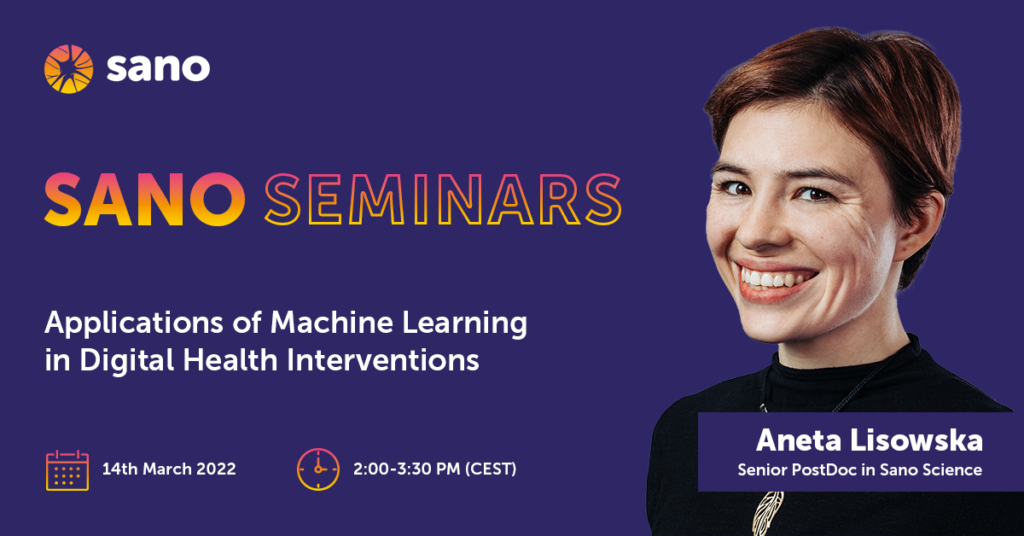55. Applications of Machine Learning in Digital Health Interventions
Aneta Lisowska – Sano Centre for Computational Personalised Medicine, International Research Foundation
Abstract
Digital health interventions (i.e., interventions implemented through digital technologies such as smartphones, websites, emails, wearable devices) have the potential to provide effective, safe, and scalable interventions to improve health, support independent living, and reduce healthcare costs .
Digital health interventions have been shown to improve outcomes in people living with chronic diseases, allow remote access to effective treatments and support changing health risk behaviors such as inactivity, unhealthy diet or substance abuse.
Mechanical learning (ML) is often used to personalize interventions. To facilitate intervention compliance and maximize its effectiveness, it is important to provide the right support at the right time.
At the seminar, I will present recent work on designing and personalizing digital health interventions that I carried out in collaboration with Prof. Szymon Wilk (Poznań University of Technology) and Prof. Mor Peleg (University of Haifa). We will explore different machine learning approaches to find the best time to intervene. We will also examine the factors affecting the effectiveness of the intervention based on the actual outcome of the real-world intervention. Finally, I will discuss future research avenues.
About the author
Aneta Lisowska is a senior postdoctoral researcher at Sano Center for Computational Medicine and Poznań University of Technology, developing AI methods for digital health interventions.
Aneta’s research journey began in Scotland where she obtained BSc in Computing and Cognitive Science from the University of Dundee and completed an industrial doctorate at Toshiba Medical Visualization System Europe and Herriot-Watt University. After obtaining Engineering Doctorate, she joined the AI team at Canon Medical Research Europe where she worked on AI methods for text and medical image analysis, delivering numerous patents utilizing deep learning methods in healthcare applications, and leading research projects focused on Active and Continual Learning.
After over 6 years of working in the medical industry on AI clinical diagnostic tools, Aneta decided to change the direction of her research towards designing AI-based applications for ubiquitous mobile devices. At the start of 2021 she joined Poznań University of Technology where she develops machine learning models for personalised coaching and decision support. In particularly, she works on ML-based approaches supporting patients with treatment adherence and development of positive health habits.
In late 2021, Aneta joined Sano, where she aims to use persuasive technology and personalized digital health interventions in chronic illness prevention applications. This is in line with Sano’s vision of “shifting healthcare philosophy from reactive to proactive”.


